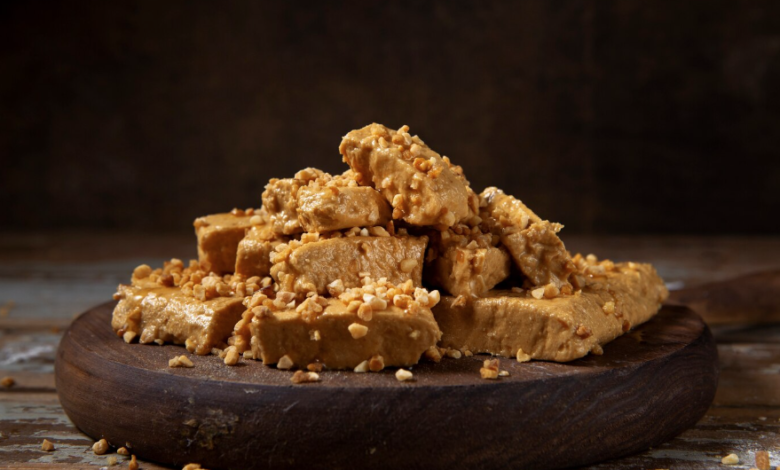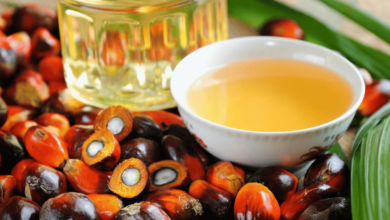The Incredible Health Benefits of Jaggery

Jaggery, known as “gur” in India, is a traditional unrefined sugar made from sugarcane or palm sap. Unlike refined sugar, jaggery retains essential nutrients and offers numerous health benefits. This natural sweetener has been used in Ayurvedic medicine for centuries and is gaining popularity worldwide for its nutritional advantages. In this article, we will explore the incredible health benefits of jaggery and why it should be included in your diet.
What is Jaggery?
The Making of Jaggery
Jaggery is produced by boiling raw sugarcane juice or palm sap until it solidifies. The process involves no chemicals, preserving the natural vitamins and minerals present in the raw materials. The resulting product is a golden-brown, coarse-textured sweetener with a distinct flavor.
Nutritional Profile
Jaggery is rich in essential nutrients, including iron, magnesium, potassium, and vitamins like B-complex. It also contains antioxidants and phenolic compounds, making it a healthier alternative to refined sugar.
Health Benefits of Jaggery
Rich Source of Energy
Jaggery is a natural energy booster. Unlike refined sugar, which provides a quick spike in energy followed by a crash, jaggery releases energy slowly, providing sustained energy throughout the day. This makes it an excellent choice for athletes and those with active lifestyles.
Aids in Digestion
Consuming jaggery after meals can aid digestion. It stimulates the secretion of digestive enzymes and helps in the smooth movement of food through the digestive tract. Jaggery also helps prevent constipation by acting as a natural laxative.
Detoxifies the Liver
Jaggery acts as a natural detoxifier, helping cleanse the liver by flushing out toxins. Regular consumption of jaggery can promote better liver function and overall detoxification of the body.
Boosts Immunity
The rich antioxidant content in jaggery helps boost the immune system. It fights against free radicals and oxidative stress, reducing the risk of infections and diseases. The presence of essential minerals also supports various immune functions.
Relieves Respiratory Issues
Jaggery is known for its beneficial effects on respiratory health. It can help alleviate symptoms of colds, coughs, and asthma. Jaggery’s natural anti-allergic properties can soothe the respiratory tract and reduce irritation.
Prevents Anemia
Jaggery is a good source of iron and folate, essential for the production of hemoglobin. Regular consumption can help prevent anemia by increasing red blood cell count and improving overall blood health.
Promotes Weight Loss
While jaggery is sweet, it can aid in weight loss when consumed in moderation. The potassium in jaggery helps balance electrolytes, boost metabolism, and reduce water retention, aiding in weight management.
Regulates Blood Pressure
The potassium and sodium content in jaggery helps maintain a healthy balance of electrolytes in the body, which is crucial for regulating blood pressure. This makes jaggery beneficial for individuals with hypertension.
Enhances Skin Health
Jaggery’s rich nutrient profile and antioxidants can improve skin health. It helps reduce acne, prevents early aging, and provides a natural glow to the skin. The minerals in jaggery also promote collagen production, maintaining skin elasticity.
Alleviates Menstrual Pain
Jaggery can help relieve menstrual pain and discomfort. Its natural properties soothe muscle cramps and provide relief from the pain associated with menstruation. Consuming jaggery regularly can also help regulate menstrual cycles.
How to Incorporate Jaggery into Your Diet
As a Sweetener
Jaggery can be used as a natural sweetener in various dishes, including desserts, beverages, and baked goods. Replace refined sugar with jaggery in your tea, coffee, or smoothies for a healthier alternative.
In Traditional Recipes
Jaggery is a key ingredient in many traditional recipes. Use it in preparing sweets like laddoos, chikki, and jaggery rice. It can also be added to savory dishes to enhance flavor.
Raw Consumption
Consuming a small piece of jaggery after meals can aid digestion and provide a quick energy boost. It can also be used as a mid-day snack for sustained energy.
Conclusion
Jaggery is not just a natural sweetener but a powerhouse of health benefits. Its rich nutritional profile and medicinal properties make it an excellent addition to a healthy diet. From boosting energy and immunity to improving digestion and skin health, jaggery offers numerous advantages over refined sugar. Incorporate this traditional sweetener into your daily routine to enjoy its incredible health benefits.
FAQs on the Incredible Health Benefits of Jaggery
1. What is jaggery?
Jaggery is a traditional unrefined sugar made from sugarcane juice or palm sap. It is known for its distinct flavor and numerous health benefits due to its rich nutrient content.
2. How is jaggery different from refined sugar?
Unlike refined sugar, which undergoes chemical processing and loses its nutrients, jaggery is made naturally without chemicals, retaining essential vitamins and minerals.
3. What nutrients are found in jaggery?
Jaggery is rich in iron, magnesium, potassium, calcium, and vitamins like B-complex. It also contains antioxidants and phenolic compounds.
4. Can jaggery help in weight loss?
Yes, when consumed in moderation, jaggery can aid in weight loss. Its potassium content helps balance electrolytes, boost metabolism, and reduce water retention.
5. How does jaggery aid digestion?
Jaggery stimulates the secretion of digestive enzymes, aids in the smooth movement of food through the digestive tract, and acts as a natural laxative, preventing constipation.
6. Is jaggery good for people with anemia?
Yes, jaggery is a good source of iron and folate, which are essential for hemoglobin production. Regular consumption can help prevent anemia by increasing red blood cell count.
7. Can jaggery improve skin health?
Yes, the antioxidants and minerals in jaggery help reduce acne, prevent early aging, and promote collagen production, enhancing skin health and elasticity.
8. How does jaggery boost immunity?
The antioxidants in jaggery fight against free radicals and oxidative stress, boosting the immune system and reducing the risk of infections and diseases.
9. What are the respiratory benefits of jaggery?
Jaggery can help alleviate symptoms of colds, coughs, and asthma due to its natural anti-allergic properties that soothe the respiratory tract.
10. How can I incorporate jaggery into my diet?
Jaggery can be used as a natural sweetener in beverages, desserts, and baked goods. It can also be consumed raw, in traditional recipes, or as a mid-day snack.
11. Benefits Is jaggery beneficial for regulating blood pressure?
Yes, the Benefits potassium and sodium content in jaggery helps maintain a healthy balance of electrolytes, which is crucial for regulating blood pressure.
12. Can jaggery help with menstrual pain?
Yes,Benefits jaggery can help relieve menstrual pain by soothing muscle cramps and providing relief from discomfort. Regular consumption can also help regulate menstrual cycles.
13. Does jaggery detoxify the liver?
Yes, jaggery acts as a natural detoxifier, helping cleanse the liver by flushing out toxins and promoting better liver function.
14. How much jaggery should I consume daily?
Moderation is key. Consuming a small piece (about 10-20 grams) of jaggery daily can provide health benefits without excessive sugar intake.
15. Is jaggery suitable for diabetics?
While jaggery is healthier than refined sugar, it still contains sugars and should be consumed in moderation by diabetics. It’s best to consult a healthcare professional before including jaggery in a diabetic diet.



